1 Chronicles 1 meaning explained in AI Summary
1 Chronicles Chapter 1 presents a lengthy genealogy, tracing the lineage of humanity from Adam to the twelve sons of Israel. It serves as an introduction to the book, establishing the historical context for the nation of Israel.
- Verses 1-4: Begins with the patriarchal line from Adam to Noah's sons, emphasizing the continuity of humanity after the flood.
- Verses 5-27: Lists the descendants of Noah's sons – Shem, Ham, and Japheth – highlighting the origins of various nations and their geographical distribution.
- Verses 28-54: Focuses on the lineage of Shem, narrowing down to Abraham through key figures like Eber and Terah. This section emphasizes the chosen line that leads to the Israelites.
- Verses 55-54: Concludes with the descendants of Esau (Edom) and the twelve sons of Jacob (Israel), setting the stage for the focus on the history of Israel in the subsequent chapters.
Purpose of the Genealogy:
- Historical Foundation: Provides a historical framework for the narrative that follows, connecting Israel to the broader human story.
- Theological Significance: Emphasizes God's covenant promises passed down through generations, culminating in the lineage of Abraham and his descendants.
- Unifying Element: Serves as a unifying factor for the people of Israel, reminding them of their shared ancestry and common heritage.
Overall, 1 Chronicles 1 lays the groundwork for understanding the history and identity of Israel by tracing their roots back to the very beginning of humanity.
1 Chronicles 1 bible study ai commentary
1 Chronicles 1 traces God’s sovereign hand through history, beginning with all humanity and progressively narrowing its focus to the ancestors of Israel. It serves as a crucial theological anchor for the post-exilic community, re-establishing their identity and continuity as God’s covenant people. By starting with Adam, the Chronicler places Israel within the universal story of humanity, while the deliberate focus on the line of Shem to Abraham, Isaac, and Jacob highlights their unique role in God's redemptive plan, setting the stage for the rise of the Davidic kingdom.
1 Chronicles 1 Context
The book of Chronicles was written for the Jewish community that had returned to Judah after the Babylonian exile (late 6th or 5th century BC). They were a people rebuilding their nation, temple, and identity. This opening chapter, a vast genealogy, served to reconnect them to their sacred past. It assured them that despite the exile and loss of their kingdom, they were not a new, forgotten people, but the direct continuation of the line God had chosen from the beginning of creation. It is a declaration of their legitimacy and a foundation for the hope of a restored Davidic monarchy, which is the central theme of Chronicles.
1 Chronicles 1:1-4
Adam, Seth, Enosh, Kenan, Mahalalel, Jared, Enoch, Methuselah, Lamech, Noah, Shem, Ham, and Japheth.
In-depth-analysis
- This is a condensed list of the ten antediluvian patriarchs from Adam to Noah, plus Noah's three sons.
- Adam: Hebrew 'adam', meaning 'man' or 'mankind'. The start of all humanity, establishing a universal scope.
- Omission of Cain: The list immediately moves to Seth, the appointed replacement for Abel (Gen 4:25). This is a theological choice, tracing the "line of promise" or "godly line" and bypassing the line of rebellion.
- Enoch: He is singled out in Genesis for having "walked with God" and being taken directly by God (Gen 5:24), a model of pre-law faithfulness.
- Shem, Ham, and Japheth: The progenitors of all post-flood humanity, setting up the "Table of Nations" that follows.
Bible references
- Luke 3:36-38: "...the son of Seth, the son of Adam, the son of God." (Luke's genealogy traces Jesus' human line back to the very beginning, affirming His role as the savior of all humanity).
- Genesis 5:1-32: Provides the detailed source account for this lineage, including their ages.
- Hebrews 11:4-7: Commemorates the faith of Abel (implying the Sethite line), Enoch, and Noah, highlighting them as key figures in the story of faith.
Cross references
Gen 4:25 (Seth as replacement), Jude 1:14 (Enoch's prophecy), Rom 5:14 (Adam as a type of Christ), 1 Pet 3:20 (God's patience in Noah's day).
1 Chronicles 1:5-7
The sons of Japheth: Gomer, Magog, Madai, Javan, Tubal, Meshech, and Tiras. The sons of Gomer: Ashkenaz, Riphath, and Togarmah. The sons of Javan: Elishah, Tarshish, Kittim, and Rodanim.
In-depth-analysis
- This section, sourced from Genesis 10, details the descendants of Japheth.
- It serves as a "geopolitical map" for the original readers. These names are associated with peoples to the north and west of Israel, including those in Anatolia (modern Turkey), Greece, and the Mediterranean islands.
- Purpose: To show that the Chronicler, and by extension God, has a comprehensive knowledge of all nations, placing Israel within a known world order.
Bible references
- Genesis 10:2-5: The direct source material for this list, part of the "Table of Nations."
- Ezekiel 38:2: "Son of man, set your face against Gog, of the land of Magog, the chief prince of Meshech and Tubal..." (Identifies some of these Japhethite peoples as eschatological enemies of Israel).
Cross references
Acts 17:26 (God determined the nations' boundaries), Isa 66:19 (Tarshish, Tubal, and Javan mentioned among distant nations who will see God's glory).
1 Chronicles 1:8-16
The sons of Ham: Cush, Egypt, Put, and Canaan... Cush fathered Nimrod, who was the first to be a mighty man on the earth... Canaan fathered Sidon his firstborn, and Heth, and the Jebusite, the Amorite, the Girgashite...
In-depth-analysis
- This list details the descendants of Ham, who generally settled to the south and southwest of Israel (Africa and Canaan).
- Nimrod: Given special attention as the founder of the Mesopotamian kingdoms (Babel, Erech, Akkad) and Assyria (Nineveh). He represents the archetype of a powerful, worldly kingdom built on human ambition and rebellion against God.
- Canaan: His descendants are listed meticulously because they are the very people inhabiting the Promised Land whom Israel was commanded to dispossess. This listing justifies Israel's claim to the land.
Polemics
The list serves as a polemic against the powerful empires of Egypt and Babylon/Assyria, placing them within God's created order and subject to His sovereign will. By listing the Canaanite tribes, it subtly delegitimizes their claim to the land, presenting them as occupants who were foreknown to be displaced by God’s chosen people according to the promise.
Bible references
- Genesis 10:6-20: The detailed source for the Hamitic peoples.
- Genesis 9:22-27: The prophecy of a curse falling on Canaan, Ham's son, providing the theological backstory for Israel's conflict with the Canaanites.
- Genesis 11:1-9: The story of the Tower of Babel, founded by Nimrod, a symbol of human pride and divine judgment.
Cross references
Gen 15:18-21 (Canaanite tribes promised to Abraham), Deut 7:1 (Command to drive out these nations).
1 Chronicles 1:17-27
The sons of Shem: Elam, Asshur, Arpachshad, Lud, and Aram... Arpachshad fathered Shelah, and Shelah fathered Eber. To Eber were born two sons: the name of the one was Peleg, for in his days the earth was divided... (list continues to)... Abram, that is, Abraham.
In-depth-analysis
- This is the most critical lineage in the chapter, tracing the line of promise from Shem to Abram.
- Shem: His name means 'name' or 'renown'. Noah's blessing in Gen 9:26 ("Blessed be the LORD, the God of Shem") designates his line as the carrier of the covenant.
- Eber: The name from which the word 'Hebrew' is likely derived, marking a key ancestor.
- Peleg: His name means 'division' (palag). The note "in his days the earth was divided" is a direct reference to the judgment and scattering of peoples at the Tower of Babel (Gen 11).
- Abram, that is, Abraham: The Chronicler explicitly notes the name change given by God (Gen 17:5), signaling the moment the covenant with this specific family was formally established. The list culminates here.
Bible references
- Genesis 11:10-26: The direct source for the genealogy from Shem to Abram.
- Genesis 12:1-3: "Go from your country... and I will make of you a great nation... and in you all the families of the earth shall be blessed." (The call of Abram, which is the goal of this entire genealogy).
- Matthew 1:1: "The book of the genealogy of Jesus Christ, the son of David, the son of Abraham." (Connects the start of the covenant line directly to Jesus).
Cross references
Gen 9:26 (Blessing of Shem), Gen 17:5 (Abram's name change), Heb 11:8 (Abraham's faith praised).
1 Chronicles 1:28-33
The sons of Abraham: Isaac and Ishmael. These are their genealogies: the firstborn of Ishmael, Nebaioth; then Kedar, Adbeel, Mibsam... The sons of Keturah, Abraham's concubine: she bore Zimran, Jokshan, Medan, Midian, Ishbak, and Shuah...
In-depth-analysis
- Having identified Abraham as the goal, the Chronicler now handles Abraham's other descendants before focusing solely on the line of promise.
- Isaac and Ishmael: Isaac is the son of promise, but Ishmael is still acknowledged as Abraham's son and the progenitor of twelve tribes, as God promised (Gen 17:20).
- Sons of Keturah: These sons are the ancestors of various Arab tribes, including the Midianites, who feature prominently later in Israel's history (e.g., as both relatives through Moses's wife and as enemies).
- Literary Function: This section acknowledges the surrounding nations (Ishmaelites, Midianites) as relatives, not strangers, but clearly distinguishes them from the covenant line, which will proceed exclusively through Isaac.
Bible references
- Genesis 25:1-18: The source for the descendants of Ishmael and Keturah.
- Romans 9:7: "...not all are children of Abraham because they are his offspring, but 'Through Isaac shall your offspring be named.'" (Paul's theological explanation for this very distinction).
- Galatians 4:22-23: Paul uses the story of Ishmael and Isaac as an allegory for two covenants: one of slavery (flesh) and one of freedom (promise).
Cross references
Gen 21:12-13 (God's promise for both Isaac and Ishmael), Jdg 6:1 (Midianites oppressing Israel).
1 Chronicles 1:34-42
The sons of Isaac: Esau and Israel. The sons of Esau: Eliphaz, Reuel, Jeush, Jalam, and Korah. The sons of Eliphaz: Teman, Omar, Zepho, Gatam, Kenaz, and of Timna, Amalek...
In-depth-analysis
- Esau and Israel: The two sons of Isaac are named. The name 'Israel' (he who strives with God) is used instead of 'Jacob', signifying his covenantal role as the father of the nation.
- The narrative immediately pivots to list the descendants of Esau (also called Edom) in detail. The line of Israel (Jacob) will be the subject of the following chapters.
- Amalek: The list includes Amalek, the perennial, implacable enemy of Israel. By noting he is a grandson of Esau, it grounds this long-standing animosity in a family schism.
- Seir the Horite: The original inhabitants of the land Esau conquered are also included, showing the Chronicler's attention to historical and geographical detail.
Bible references
- Genesis 36:1-19: The direct source for Esau's descendants and the clans of Edom.
- Obadiah 1:10: "Because of the violence against your brother Jacob, you will be covered with shame..." (Prophecy against Edom, framing the conflict in fraternal terms).
- Romans 9:10-13: "'Jacob I loved, but Esau I hated.' ...though they were not yet born and had done nothing either good or bad—in order that God's purpose of election might continue..." (Paul uses this story to explain the doctrine of sovereign election).
Cross references
Gen 27:41 (Esau's grudge against Jacob), Deut 23:7 (command not to abhor an Edomite, for he is a brother), Exod 17:8-16 (conflict with Amalek).
1 Chronicles 1:43-54
These are the kings who reigned in the land of Edom before any king reigned over the sons of Israel... When Bela died, Jobab the son of Zerah of Bozrah reigned in his place... The chiefs of Edom were: chief Timna, chief Alvah, chief Jetheth...
In-depth-analysis
- This section, taken directly from Genesis 36, lists the kings and chiefs who ruled Edom.
- "Before any king reigned over the sons of Israel": This phrase is highly significant. For the original audience, it's a poignant reminder of their own history. Edom, the "profane" line, had an organized monarchy long before Israel did.
- Theological Contrast: The Edomite kingship is presented as transient and human-based ("When [one] died, [another] reigned"). This implicitly contrasts with the divinely ordained, eternal Davidic kingship to which the book of Chronicles is building. These kings are a historical footnote; David's throne is forever (through the Messiah).
Bible references
- Genesis 36:31-43: The identical source text for this list of Edomite rulers.
- Numbers 24:17-18: "a star shall come out of Jacob... Edom shall be a possession..." (Balaam's prophecy predicts Israel's ultimate triumph over the established kingdom of Edom).
- 2 Samuel 8:14: "And he put garrisons in Edom; throughout all Edom he put garrisons, and all the Edomites became David's servants." (The historical fulfillment of David's dominance over Edom).
Cross references
Deut 17:14-15 (The law of the king, foreseeing Israel would want one), 1 Sam 8:5-7 (Israel demands a king like the other nations).
1 Chronicles chapter 1 analysis
- The Gospel in the Names: A fascinating interpretation derived from the Hebrew meanings of the names of the ten patriarchs from Adam to Noah (v. 1-4) reveals a prophetic message:
- Adam (Man) Seth (is Appointed) Enosh (Mortal) Kenan (Sorrow), Mahalalel (The Blessed God) Jared (shall come down) Enoch (Teaching), Methuselah (His death shall bring) Lamech (the Despairing) Noah (Rest/Comfort).
- This forms the sentence: "Man is appointed mortal sorrow; yet the Blessed God shall come down teaching. His death shall bring the despairing rest." This demonstrates a belief in God's redemptive plan embedded in the very first generations.
- A Map of Identity: For the returning exiles, this chapter was more than a list. It was a map defining who they were. It established their connection to all of humanity (Adam), their place among the family of nations (sons of Noah), their divine calling (Shem), their covenant identity (Abraham), and their specific heritage over against their closest relatives and adversaries (Ishmael, Esau).
- Theology of Selection: The chapter is a masterclass in theological history. It is not an exhaustive record but a highly selective one. The omissions (like Cain) and the linear focus (Adam to Seth; Shem to Abraham; Isaac to Jacob) are intentional choices to trace the line of God's redemptive purpose through a world of diversions and rebellions. It shows God's sovereign hand guiding history toward a specific goal: the people of Israel, the line of David, and ultimately, the Messiah.
1 Chronicles 1 summary
1 Chronicles 1 provides a swift yet profound genealogy from Adam to the generations preceding the Israelite monarchy. It functions to ground the post-exilic community in their identity as God's chosen people, tracing the specific line of promise from the beginning of humanity, through the patriarchs, and distinguishing them from their relatives like the Edomites. This universal-to-specific framework establishes their place in history and sets the stage for God's covenant with the house of David.
1 Chronicles 1 AI Image Audio and Video

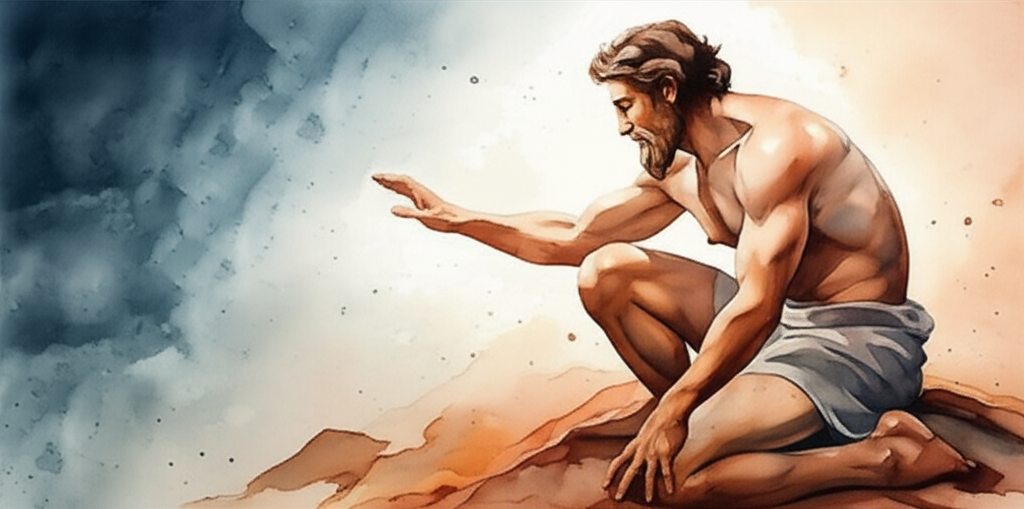
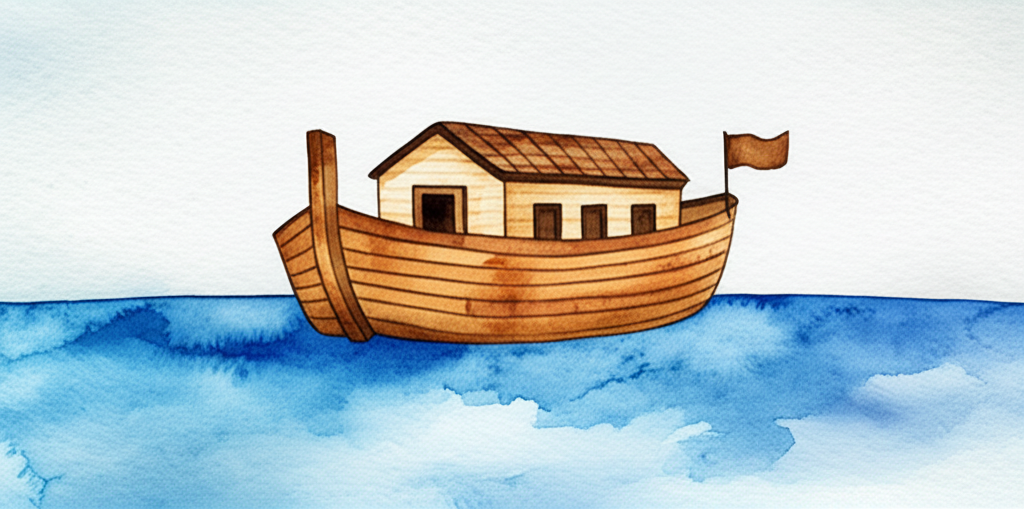
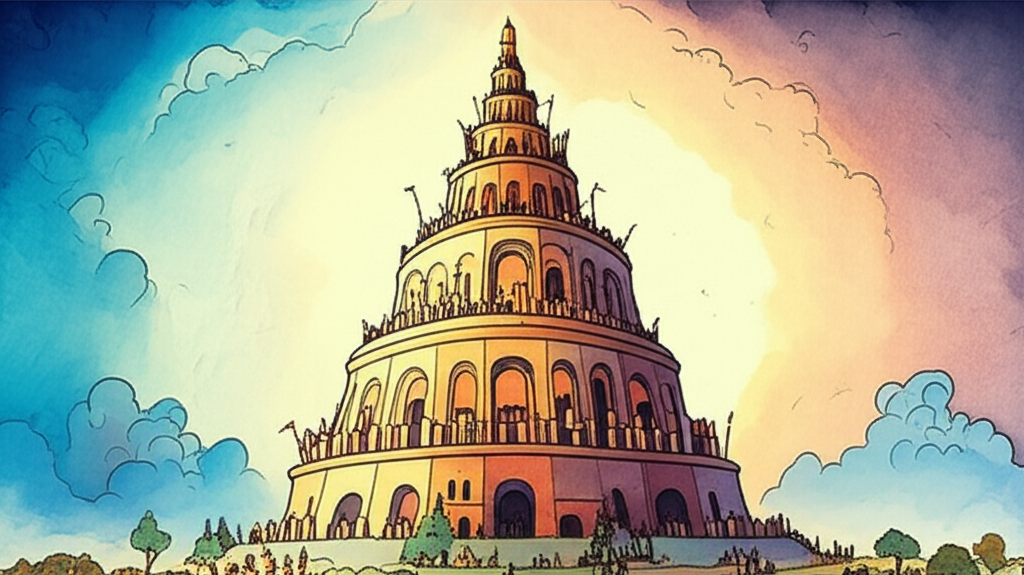
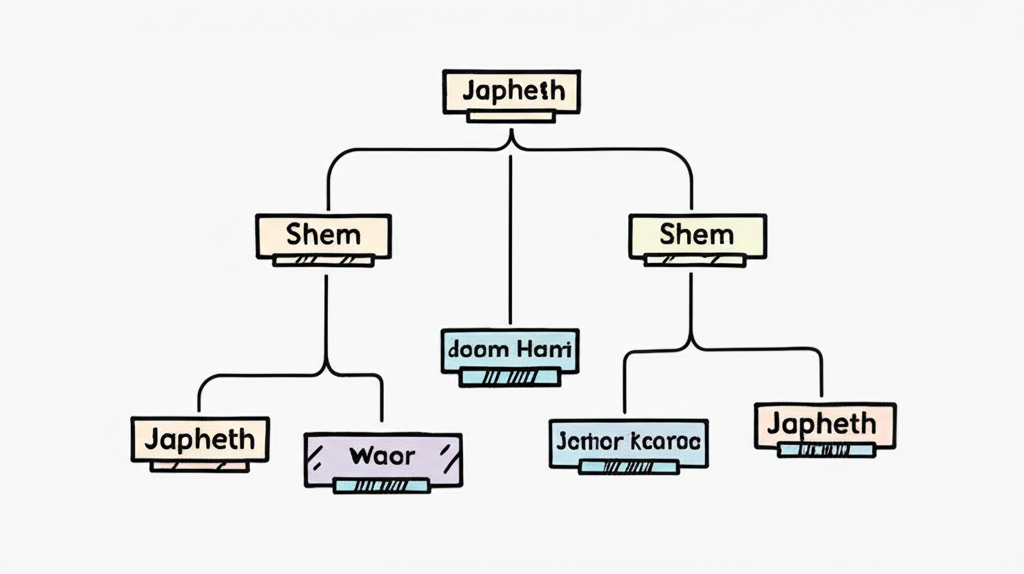
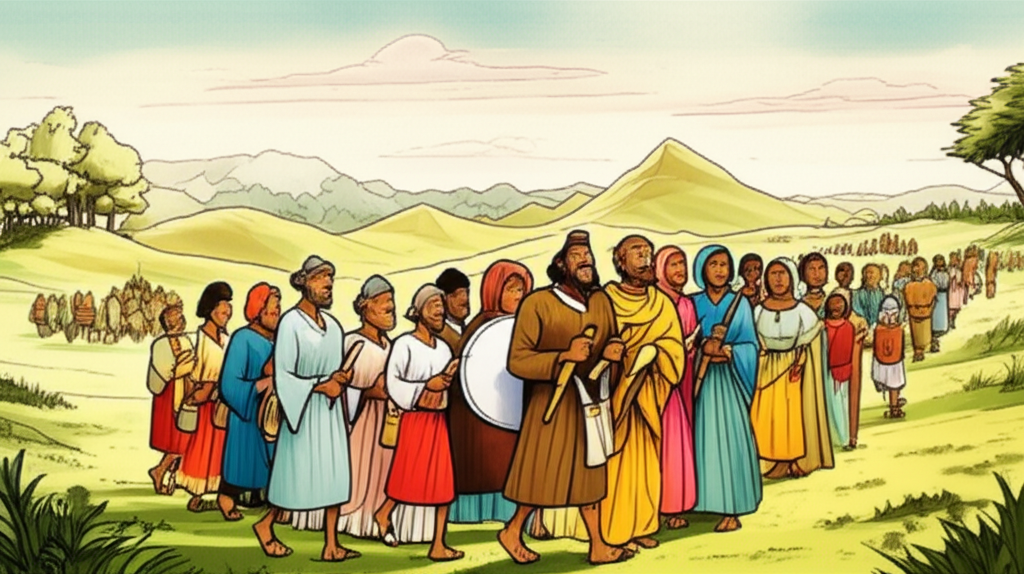

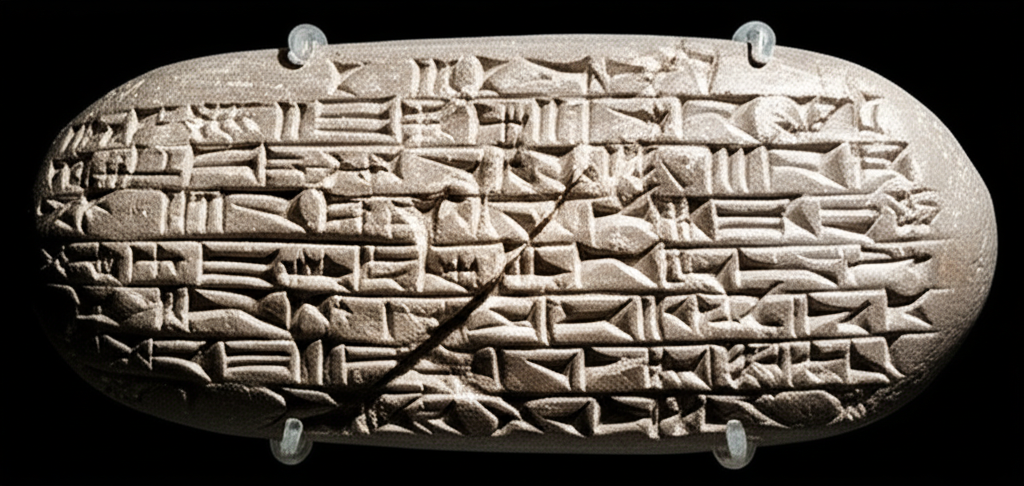
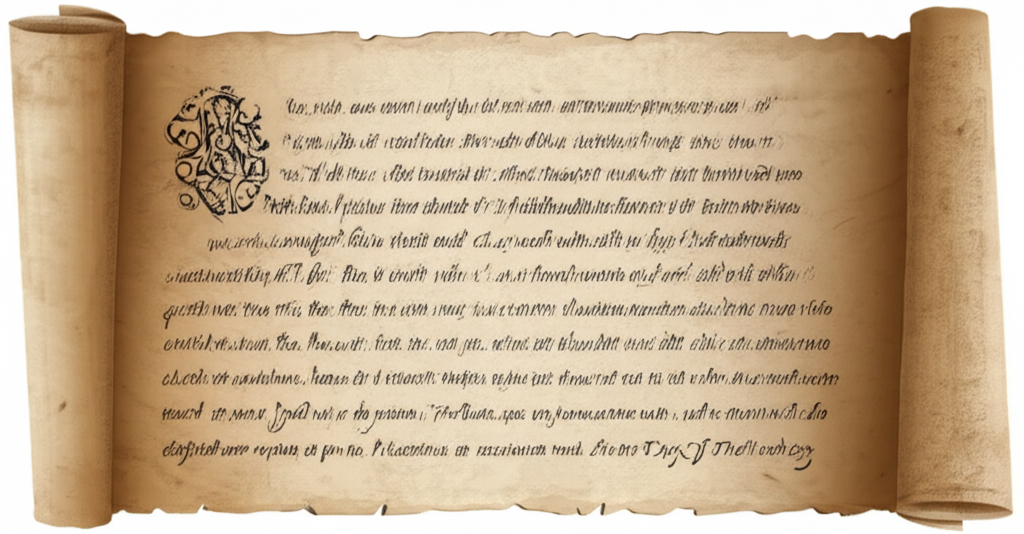
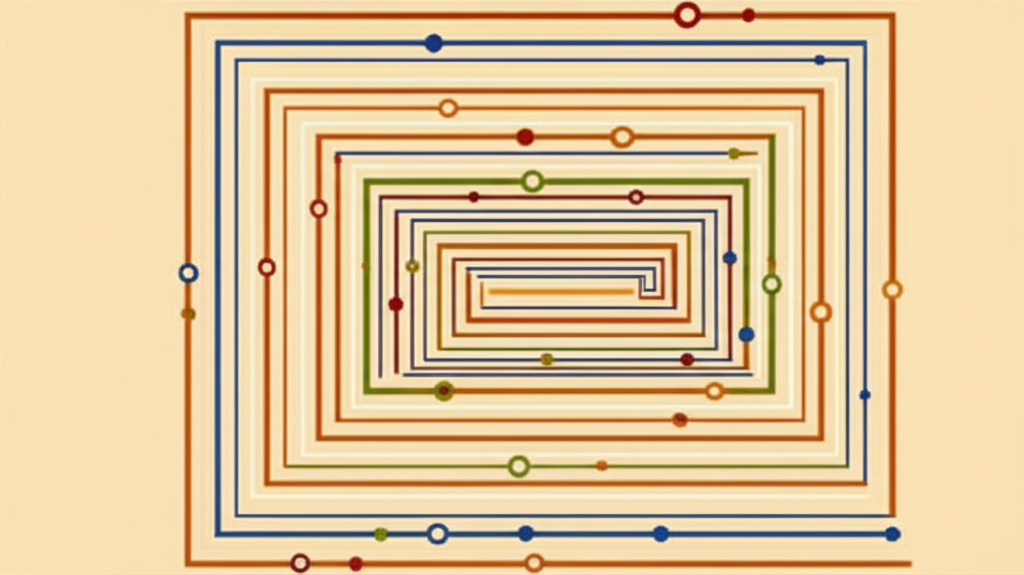
1 Chronicles chapter 1 kjv
- 1 Adam, Sheth, Enosh,
- 2 Kenan, Mahalaleel, Jered,
- 3 Henoch, Methuselah, Lamech,
- 4 Noah, Shem, Ham, and Japheth.
- 5 The sons of Japheth; Gomer, and Magog, and Madai, and Javan, and Tubal, and Meshech, and Tiras.
- 6 And the sons of Gomer; Ashchenaz, and Riphath, and Togarmah.
- 7 And the sons of Javan; Elishah, and Tarshish, Kittim, and Dodanim.
- 8 The sons of Ham; Cush, and Mizraim, Put, and Canaan.
- 9 And the sons of Cush; Seba, and Havilah, and Sabta, and Raamah, and Sabtecha. And the sons of Raamah; Sheba, and Dedan.
- 10 And Cush begat Nimrod: he began to be mighty upon the earth.
- 11 And Mizraim begat Ludim, and Anamim, and Lehabim, and Naphtuhim,
- 12 And Pathrusim, and Casluhim, (of whom came the Philistines,) and Caphthorim.
- 13 And Canaan begat Zidon his firstborn, and Heth,
- 14 The Jebusite also, and the Amorite, and the Girgashite,
- 15 And the Hivite, and the Arkite, and the Sinite,
- 16 And the Arvadite, and the Zemarite, and the Hamathite.
- 17 The sons of Shem; Elam, and Asshur, and Arphaxad, and Lud, and Aram, and Uz, and Hul, and Gether, and Meshech.
- 18 And Arphaxad begat Shelah, and Shelah begat Eber.
- 19 And unto Eber were born two sons: the name of the one was Peleg; because in his days the earth was divided: and his brother's name was Joktan.
- 20 And Joktan begat Almodad, and Sheleph, and Hazarmaveth, and Jerah,
- 21 Hadoram also, and Uzal, and Diklah,
- 22 And Ebal, and Abimael, and Sheba,
- 23 And Ophir, and Havilah, and Jobab. All these were the sons of Joktan.
- 24 Shem, Arphaxad, Shelah,
- 25 Eber, Peleg, Reu,
- 26 Serug, Nahor, Terah,
- 27 Abram; the same is Abraham.
- 28 The sons of Abraham; Isaac, and Ishmael.
- 29 These are their generations: The firstborn of Ishmael, Nebaioth; then Kedar, and Adbeel, and Mibsam,
- 30 Mishma, and Dumah, Massa, Hadad, and Tema,
- 31 Jetur, Naphish, and Kedemah. These are the sons of Ishmael.
- 32 Now the sons of Keturah, Abraham's concubine: she bare Zimran, and Jokshan, and Medan, and Midian, and Ishbak, and Shuah. And the sons of Jokshan; Sheba, and Dedan.
- 33 And the sons of Midian; Ephah, and Epher, and Henoch, and Abida, and Eldaah. All these are the sons of Keturah.
- 34 And Abraham begat Isaac. The sons of Isaac; Esau and Israel.
- 35 The sons of Esau; Eliphaz, Reuel, and Jeush, and Jaalam, and Korah.
- 36 The sons of Eliphaz; Teman, and Omar, Zephi, and Gatam, Kenaz, and Timna, and Amalek.
- 37 The sons of Reuel; Nahath, Zerah, Shammah, and Mizzah.
- 38 And the sons of Seir; Lotan, and Shobal, and Zibeon, and Anah, and Dishon, and Ezar, and Dishan.
- 39 And the sons of Lotan; Hori, and Homam: and Timna was Lotan's sister.
- 40 The sons of Shobal; Alian, and Manahath, and Ebal, Shephi, and Onam. and the sons of Zibeon; Aiah, and Anah.
- 41 The sons of Anah; Dishon. And the sons of Dishon; Amram, and Eshban, and Ithran, and Cheran.
- 42 The sons of Ezer; Bilhan, and Zavan, and Jakan. The sons of Dishan; Uz, and Aran.
- 43 Now these are the kings that reigned in the land of Edom before any king reigned over the children of Israel; Bela the son of Beor: and the name of his city was Dinhabah.
- 44 And when Bela was dead, Jobab the son of Zerah of Bozrah reigned in his stead.
- 45 And when Jobab was dead, Husham of the land of the Temanites reigned in his stead.
- 46 And when Husham was dead, Hadad the son of Bedad, which smote Midian in the field of Moab, reigned in his stead: and the name of his city was Avith.
- 47 And when Hadad was dead, Samlah of Masrekah reigned in his stead.
- 48 And when Samlah was dead, Shaul of Rehoboth by the river reigned in his stead.
- 49 And when Shaul was dead, Baalhanan the son of Achbor reigned in his stead.
- 50 And when Baalhanan was dead, Hadad reigned in his stead: and the name of his city was Pai; and his wife's name was Mehetabel, the daughter of Matred, the daughter of Mezahab.
- 51 Hadad died also. And the dukes of Edom were; duke Timnah, duke Aliah, duke Jetheth,
- 52 Duke Aholibamah, duke Elah, duke Pinon,
- 53 Duke Kenaz, duke Teman, duke Mibzar,
- 54 Duke Magdiel, duke Iram. These are the dukes of Edom.
1 Chronicles chapter 1 nkjv
- 1 Adam, Seth, Enosh,
- 2 Cainan, Mahalalel, Jared,
- 3 Enoch, Methuselah, Lamech,
- 4 Noah, Shem, Ham, and Japheth.
- 5 The sons of Japheth were Gomer, Magog, Madai, Javan, Tubal, Meshech, and Tiras.
- 6 The sons of Gomer were Ashkenaz, Diphath, and Togarmah.
- 7 The sons of Javan were Elishah, Tarshishah, Kittim, and Rodanim.
- 8 The sons of Ham were Cush, Mizraim, Put, and Canaan.
- 9 The sons of Cush were Seba, Havilah, Sabta, Raama, and Sabtecha. The sons of Raama were Sheba and Dedan.
- 10 Cush begot Nimrod; he began to be a mighty one on the earth.
- 11 Mizraim begot Ludim, Anamim, Lehabim, Naphtuhim,
- 12 Pathrusim, Casluhim (from whom came the Philistines and the Caphtorim).
- 13 Canaan begot Sidon, his firstborn, and Heth;
- 14 the Jebusite, the Amorite, and the Girgashite;
- 15 the Hivite, the Arkite, and the Sinite;
- 16 the Arvadite, the Zemarite, and the Hamathite.
- 17 The sons of Shem were Elam, Asshur, Arphaxad, Lud, Aram, Uz, Hul, Gether, and Meshech.
- 18 Arphaxad begot Shelah, and Shelah begot Eber.
- 19 To Eber were born two sons: the name of one was Peleg, for in his days the earth was divided; and his brother's name was Joktan.
- 20 Joktan begot Almodad, Sheleph, Hazarmaveth, Jerah,
- 21 Hadoram, Uzal, Diklah,
- 22 Ebal, Abimael, Sheba,
- 23 Ophir, Havilah, and Jobab. All these were the sons of Joktan.
- 24 Shem, Arphaxad, Shelah,
- 25 Eber, Peleg, Reu,
- 26 Serug, Nahor, Terah,
- 27 and Abram, who is Abraham.
- 28 The sons of Abraham were Isaac and Ishmael.
- 29 These are their genealogies: The firstborn of Ishmael was Nebajoth; then Kedar, Adbeel, Mibsam,
- 30 Mishma, Dumah, Massa, Hadad, Tema,
- 31 Jetur, Naphish, and Kedemah. These were the sons of Ishmael.
- 32 Now the sons born to Keturah, Abraham's concubine, were Zimran, Jokshan, Medan, Midian, Ishbak, and Shuah. The sons of Jokshan were Sheba and Dedan.
- 33 The sons of Midian were Ephah, Epher, Hanoch, Abida, and Eldaah. All these were the children of Keturah.
- 34 And Abraham begot Isaac. The sons of Isaac were Esau and Israel.
- 35 The sons of Esau were Eliphaz, Reuel, Jeush, Jaalam, and Korah.
- 36 And the sons of Eliphaz were Teman, Omar, Zephi, Gatam, and Kenaz; and by Timna, Amalek.
- 37 The sons of Reuel were Nahath, Zerah, Shammah, and Mizzah.
- 38 The sons of Seir were Lotan, Shobal, Zibeon, Anah, Dishon, Ezer, and Dishan.
- 39 And the sons of Lotan were Hori and Homam; Lotan's sister was Timna.
- 40 The sons of Shobal were Alian, Manahath, Ebal, Shephi, and Onam. The sons of Zibeon were Ajah and Anah.
- 41 The son of Anah was Dishon. The sons of Dishon were Hamran, Eshban, Ithran, and Cheran.
- 42 The sons of Ezer were Bilhan, Zaavan, and Jaakan. The sons of Dishan were Uz and Aran.
- 43 Now these were the kings who reigned in the land of Edom before a king reigned over the children of Israel: Bela the son of Beor, and the name of his city was Dinhabah.
- 44 And when Bela died, Jobab the son of Zerah of Bozrah reigned in his place.
- 45 When Jobab died, Husham of the land of the Temanites reigned in his place.
- 46 And when Husham died, Hadad the son of Bedad, who attacked Midian in the field of Moab, reigned in his place. The name of his city was Avith.
- 47 When Hadad died, Samlah of Masrekah reigned in his place.
- 48 And when Samlah died, Saul of Rehoboth-by-the-River reigned in his place.
- 49 When Saul died, Baal-Hanan the son of Achbor reigned in his place.
- 50 And when Baal-Hanan died, Hadad reigned in his place; and the name of his city was Pai. His wife's name was Mehetabel the daughter of Matred, the daughter of Mezahab.
- 51 Hadad died also. And the chiefs of Edom were Chief Timnah, Chief Aliah, Chief Jetheth,
- 52 Chief Aholibamah, Chief Elah, Chief Pinon,
- 53 Chief Kenaz, Chief Teman, Chief Mibzar,
- 54 Chief Magdiel, and Chief Iram. These were the chiefs of Edom.
1 Chronicles chapter 1 niv
- 1 Adam, Seth, Enosh,
- 2 Kenan, Mahalalel, Jared,
- 3 Enoch, Methuselah, Lamech, Noah.
- 4 The sons of Noah: Shem, Ham and Japheth.
- 5 The sons of Japheth: Gomer, Magog, Madai, Javan, Tubal, Meshek and Tiras.
- 6 The sons of Gomer: Ashkenaz, Riphath and Togarmah.
- 7 The sons of Javan: Elishah, Tarshish, the Kittites and the Rodanites.
- 8 The sons of Ham: Cush, Egypt, Put and Canaan.
- 9 The sons of Cush: Seba, Havilah, Sabta, Raamah and Sabteka. The sons of Raamah: Sheba and Dedan.
- 10 Cush was the father of Nimrod, who became a mighty warrior on earth.
- 11 Egypt was the father of the Ludites, Anamites, Lehabites, Naphtuhites,
- 12 Pathrusites, Kasluhites (from whom the Philistines came) and Caphtorites.
- 13 Canaan was the father of Sidon his firstborn, and of the Hittites,
- 14 Jebusites, Amorites, Girgashites,
- 15 Hivites, Arkites, Sinites,
- 16 Arvadites, Zemarites and Hamathites.
- 17 The sons of Shem: Elam, Ashur, Arphaxad, Lud and Aram. The sons of Aram: Uz, Hul, Gether and Meshek.
- 18 Arphaxad was the father of Shelah, and Shelah the father of Eber.
- 19 Two sons were born to Eber: One was named Peleg, because in his time the earth was divided; his brother was named Joktan.
- 20 Joktan was the father of Almodad, Sheleph, Hazarmaveth, Jerah,
- 21 Hadoram, Uzal, Diklah,
- 22 Obal, Abimael, Sheba,
- 23 Ophir, Havilah and Jobab. All these were sons of Joktan.
- 24 Shem, Arphaxad, Shelah,
- 25 Eber, Peleg, Reu,
- 26 Serug, Nahor, Terah
- 27 and Abram (that is, Abraham).
- 28 The sons of Abraham: Isaac and Ishmael.
- 29 These were their descendants: Nebaioth the firstborn of Ishmael, Kedar, Adbeel, Mibsam,
- 30 Mishma, Dumah, Massa, Hadad, Tema,
- 31 Jetur, Naphish and Kedemah. These were the sons of Ishmael.
- 32 The sons born to Keturah, Abraham's concubine: Zimran, Jokshan, Medan, Midian, Ishbak and Shuah. The sons of Jokshan: Sheba and Dedan.
- 33 The sons of Midian: Ephah, Epher, Hanok, Abida and Eldaah. All these were descendants of Keturah.
- 34 Abraham was the father of Isaac. The sons of Isaac: Esau and Israel.
- 35 The sons of Esau: Eliphaz, Reuel, Jeush, Jalam and Korah.
- 36 The sons of Eliphaz: Teman, Omar, Zepho, Gatam and Kenaz; by Timna: Amalek.
- 37 The sons of Reuel: Nahath, Zerah, Shammah and Mizzah.
- 38 The sons of Seir: Lotan, Shobal, Zibeon, Anah, Dishon, Ezer and Dishan.
- 39 The sons of Lotan: Hori and Homam. Timna was Lotan's sister.
- 40 The sons of Shobal: Alvan, Manahath, Ebal, Shepho and Onam. The sons of Zibeon: Aiah and Anah.
- 41 The son of Anah: Dishon. The sons of Dishon: Hemdan, Eshban, Ithran and Keran.
- 42 The sons of Ezer: Bilhan, Zaavan and Akan. The sons of Dishan: Uz and Aran.
- 43 These were the kings who reigned in Edom before any Israelite king reigned: Bela son of Beor, whose city was named Dinhabah.
- 44 When Bela died, Jobab son of Zerah from Bozrah succeeded him as king.
- 45 When Jobab died, Husham from the land of the Temanites succeeded him as king.
- 46 When Husham died, Hadad son of Bedad, who defeated Midian in the country of Moab, succeeded him as king. His city was named Avith.
- 47 When Hadad died, Samlah from Masrekah succeeded him as king.
- 48 When Samlah died, Shaul from Rehoboth on the river succeeded him as king.
- 49 When Shaul died, Baal-Hanan son of Akbor succeeded him as king.
- 50 When Baal-Hanan died, Hadad succeeded him as king. His city was named Pau, and his wife's name was Mehetabel daughter of Matred, the daughter of Me-Zahab.
- 51 Hadad also died. The chiefs of Edom were: Timna, Alvah, Jetheth,
- 52 Oholibamah, Elah, Pinon,
- 53 Kenaz, Teman, Mibzar,
- 54 Magdiel and Iram. These were the chiefs of Edom.
1 Chronicles chapter 1 esv
- 1 Adam, Seth, Enosh;
- 2 Kenan, Mahalalel, Jared;
- 3 Enoch, Methuselah, Lamech;
- 4 Noah, Shem, Ham, and Japheth.
- 5 The sons of Japheth: Gomer, Magog, Madai, Javan, Tubal, Meshech, and Tiras.
- 6 The sons of Gomer: Ashkenaz, Riphath, and Togarmah.
- 7 The sons of Javan: Elishah, Tarshish, Kittim, and Rodanim.
- 8 The sons of Ham: Cush, Egypt, Put, and Canaan.
- 9 The sons of Cush: Seba, Havilah, Sabta, Raamah, and Sabteca. The sons of Raamah: Sheba and Dedan.
- 10 Cush fathered Nimrod. He was the first on earth to be a mighty man.
- 11 Egypt fathered Ludim, Anamim, Lehabim, Naphtuhim,
- 12 Pathrusim, Casluhim (from whom the Philistines came), and Caphtorim.
- 13 Canaan fathered Sidon his firstborn and Heth,
- 14 and the Jebusites, the Amorites, the Girgashites,
- 15 the Hivites, the Arkites, the Sinites,
- 16 the Arvadites, the Zemarites, and the Hamathites.
- 17 The sons of Shem: Elam, Asshur, Arpachshad, Lud, and Aram. And the sons of Aram: Uz, Hul, Gether, and Meshech.
- 18 Arpachshad fathered Shelah, and Shelah fathered Eber.
- 19 To Eber were born two sons: the name of the one was Peleg (for in his days the earth was divided), and his brother's name was Joktan.
- 20 Joktan fathered Almodad, Sheleph, Hazarmaveth, Jerah,
- 21 Hadoram, Uzal, Diklah,
- 22 Obal, Abimael, Sheba,
- 23 Ophir, Havilah, and Jobab; all these were the sons of Joktan.
- 24 Shem, Arpachshad, Shelah;
- 25 Eber, Peleg, Reu;
- 26 Serug, Nahor, Terah;
- 27 Abram, that is, Abraham.
- 28 The sons of Abraham: Isaac and Ishmael.
- 29 These are their genealogies: the firstborn of Ishmael, Nebaioth, and Kedar, Adbeel, Mibsam,
- 30 Mishma, Dumah, Massa, Hadad, Tema,
- 31 Jetur, Naphish, and Kedemah. These are the sons of Ishmael.
- 32 The sons of Keturah, Abraham's concubine: she bore Zimran, Jokshan, Medan, Midian, Ishbak, and Shuah. The sons of Jokshan: Sheba and Dedan.
- 33 The sons of Midian: Ephah, Epher, Hanoch, Abida, and Eldaah. All these were the descendants of Keturah.
- 34 Abraham fathered Isaac. The sons of Isaac: Esau and Israel.
- 35 The sons of Esau: Eliphaz, Reuel, Jeush, Jalam, and Korah.
- 36 The sons of Eliphaz: Teman, Omar, Zepho, Gatam, Kenaz, and of Timna, Amalek.
- 37 The sons of Reuel: Nahath, Zerah, Shammah, and Mizzah.
- 38 The sons of Seir: Lotan, Shobal, Zibeon, Anah, Dishon, Ezer, and Dishan.
- 39 The sons of Lotan: Hori and Hemam; and Lotan's sister was Timna.
- 40 The sons of Shobal: Alvan, Manahath, Ebal, Shepho, and Onam. The sons of Zibeon: Aiah and Anah.
- 41 The son of Anah: Dishon. The sons of Dishon: Hemdan, Eshban, Ithran, and Cheran.
- 42 The sons of Ezer: Bilhan, Zaavan, and Akan. The sons of Dishan: Uz and Aran.
- 43 These are the kings who reigned in the land of Edom before any king reigned over the people of Israel: Bela the son of Beor, the name of his city being Dinhabah.
- 44 Bela died, and Jobab the son of Zerah of Bozrah reigned in his place.
- 45 Jobab died, and Husham of the land of the Temanites reigned in his place.
- 46 Husham died, and Hadad the son of Bedad, who defeated Midian in the country of Moab, reigned in his place, the name of his city being Avith.
- 47 Hadad died, and Samlah of Masrekah reigned in his place.
- 48 Samlah died, and Shaul of Rehoboth on the Euphrates reigned in his place.
- 49 Shaul died, and Baal-hanan, the son of Achbor, reigned in his place.
- 50 Baal-hanan died, and Hadad reigned in his place, the name of his city being Pai; and his wife's name was Mehetabel, the daughter of Matred, the daughter of Mezahab.
- 51 And Hadad died. The chiefs of Edom were: chiefs Timna, Alvah, Jetheth,
- 52 Oholibamah, Elah, Pinon,
- 53 Kenaz, Teman, Mibzar,
- 54 Magdiel, and Iram; these are the chiefs of Edom.
1 Chronicles chapter 1 nlt
- 1 The descendants of Adam were Seth, Enosh,
- 2 Kenan, Mahalalel, Jared,
- 3 Enoch, Methuselah, Lamech,
- 4 and Noah. The sons of Noah were Shem, Ham, and Japheth.
- 5 The descendants of Japheth were Gomer, Magog, Madai, Javan, Tubal, Meshech, and Tiras.
- 6 The descendants of Gomer were Ashkenaz, Riphath, and Togarmah.
- 7 The descendants of Javan were Elishah, Tarshish, Kittim, and Rodanim.
- 8 The descendants of Ham were Cush, Mizraim, Put, and Canaan.
- 9 The descendants of Cush were Seba, Havilah, Sabtah, Raamah, and Sabteca. The descendants of Raamah were Sheba and Dedan.
- 10 Cush was also the ancestor of Nimrod, who was the first heroic warrior on earth.
- 11 Mizraim was the ancestor of the Ludites, Anamites, Lehabites, Naphtuhites,
- 12 Pathrusites, Casluhites, and the Caphtorites, from whom the Philistines came.
- 13 Canaan's oldest son was Sidon, the ancestor of the Sidonians. Canaan was also the ancestor of the Hittites,
- 14 Jebusites, Amorites, Girgashites,
- 15 Hivites, Arkites, Sinites,
- 16 Arvadites, Zemarites, and Hamathites.
- 17 The descendants of Shem were Elam, Asshur, Arphaxad, Lud, and Aram. The descendants of Aram were Uz, Hul, Gether, and Mash.
- 18 Arphaxad was the father of Shelah. Shelah was the father of Eber.
- 19 Eber had two sons. The first was named Peleg (which means "division"), for during his lifetime the people of the world were divided into different language groups. His brother's name was Joktan.
- 20 Joktan was the ancestor of Almodad, Sheleph, Hazarmaveth, Jerah,
- 21 Hadoram, Uzal, Diklah,
- 22 Obal, Abimael, Sheba,
- 23 Ophir, Havilah, and Jobab. All these were descendants of Joktan.
- 24 So this is the family line descended from Shem: Arphaxad, Shelah,
- 25 Eber, Peleg, Reu,
- 26 Serug, Nahor, Terah,
- 27 and Abram, later known as Abraham.
- 28 The sons of Abraham were Isaac and Ishmael.
- 29 These are their genealogical records: The sons of Ishmael were Nebaioth (the oldest), Kedar, Adbeel, Mibsam,
- 30 Mishma, Dumah, Massa, Hadad, Tema,
- 31 Jetur, Naphish, and Kedemah. These were the sons of Ishmael.
- 32 The sons of Keturah, Abraham's concubine, were Zimran, Jokshan, Medan, Midian, Ishbak, and Shuah. The sons of Jokshan were Sheba and Dedan.
- 33 The sons of Midian were Ephah, Epher, Hanoch, Abida, and Eldaah. All these were descendants of Abraham through his concubine Keturah.
- 34 Abraham was the father of Isaac. The sons of Isaac were Esau and Israel.
- 35 The sons of Esau were Eliphaz, Reuel, Jeush, Jalam, and Korah.
- 36 The descendants of Eliphaz were Teman, Omar, Zepho, Gatam, Kenaz, and Amalek, who was born to Timna.
- 37 The descendants of Reuel were Nahath, Zerah, Shammah, and Mizzah.
- 38 The descendants of Seir were Lotan, Shobal, Zibeon, Anah, Dishon, Ezer, and Dishan.
- 39 The descendants of Lotan were Hori and Hemam. Lotan's sister was named Timna.
- 40 The descendants of Shobal were Alvan, Manahath, Ebal, Shepho, and Onam. The descendants of Zibeon were Aiah and Anah.
- 41 The son of Anah was Dishon. The descendants of Dishon were Hemdan, Eshban, Ithran, and Keran.
- 42 The descendants of Ezer were Bilhan, Zaavan, and Akan. The descendants of Dishan were Uz and Aran.
- 43 These are the kings who ruled in the land of Edom before any king ruled over the Israelites : Bela son of Beor, who ruled from his city of Dinhabah.
- 44 When Bela died, Jobab son of Zerah from Bozrah became king in his place.
- 45 When Jobab died, Husham from the land of the Temanites became king in his place.
- 46 When Husham died, Hadad son of Bedad became king in his place and ruled from the city of Avith. He was the one who destroyed the Midianite army in the land of Moab.
- 47 When Hadad died, Samlah from the city of Masrekah became king in his place.
- 48 When Samlah died, Shaul from the city of Rehoboth-on-the-River became king in his place.
- 49 When Shaul died, Baal-hanan son of Acbor became king in his place.
- 50 When Baal-hanan died, Hadad became king in his place and ruled from the city of Pau. His wife was Mehetabel, the daughter of Matred and granddaughter of Me-zahab.
- 51 Then Hadad died. The clan leaders of Edom were Timna, Alvah, Jetheth,
- 52 Oholibamah, Elah, Pinon,
- 53 Kenaz, Teman, Mibzar,
- 54 Magdiel, and Iram. These are the clan leaders of Edom.
- Bible Book of 1 Chronicles
- 1 Adam to Noah and Abraham
- 2 Lineage of King David Tribe of Judah
- 3 King David Children
- 4 Descendants of Judah
- 5 Descendants of Reuben
- 6 Sons of Levi The Priestly Line
- 7 Descendants of Issachar
- 8 A Genealogy of Saul
- 9 A Genealogy of the Returned Exiles
- 10 The Death of King Saul
- 11 David Anointed King
- 12 The Mighty Men Join David
- 13 The Ark Brought from Kiriath-Jearim
- 14 David's Wives and Children
- 15 The Ark Brought to Jerusalem
- 16 The Ark Placed in a Tent
- 17 The Lord's Covenant with David
- 18 David Defeats His Enemies
- 19 The Ammonites Disgrace David's Men
- 20 The Capture of Rabbah
- 21 David's Census Brings Pestilence
- 22 David Prepares for Temple Building
- 23 David Organizes the Levites
- 24 24 Courses of Priests
- 25 David Organizes the Musicians
- 26 Divisions of the Gatekeepers
- 27 Military Divisions
- 28 David's Charge to Israel
- 29 Offerings for the Temple